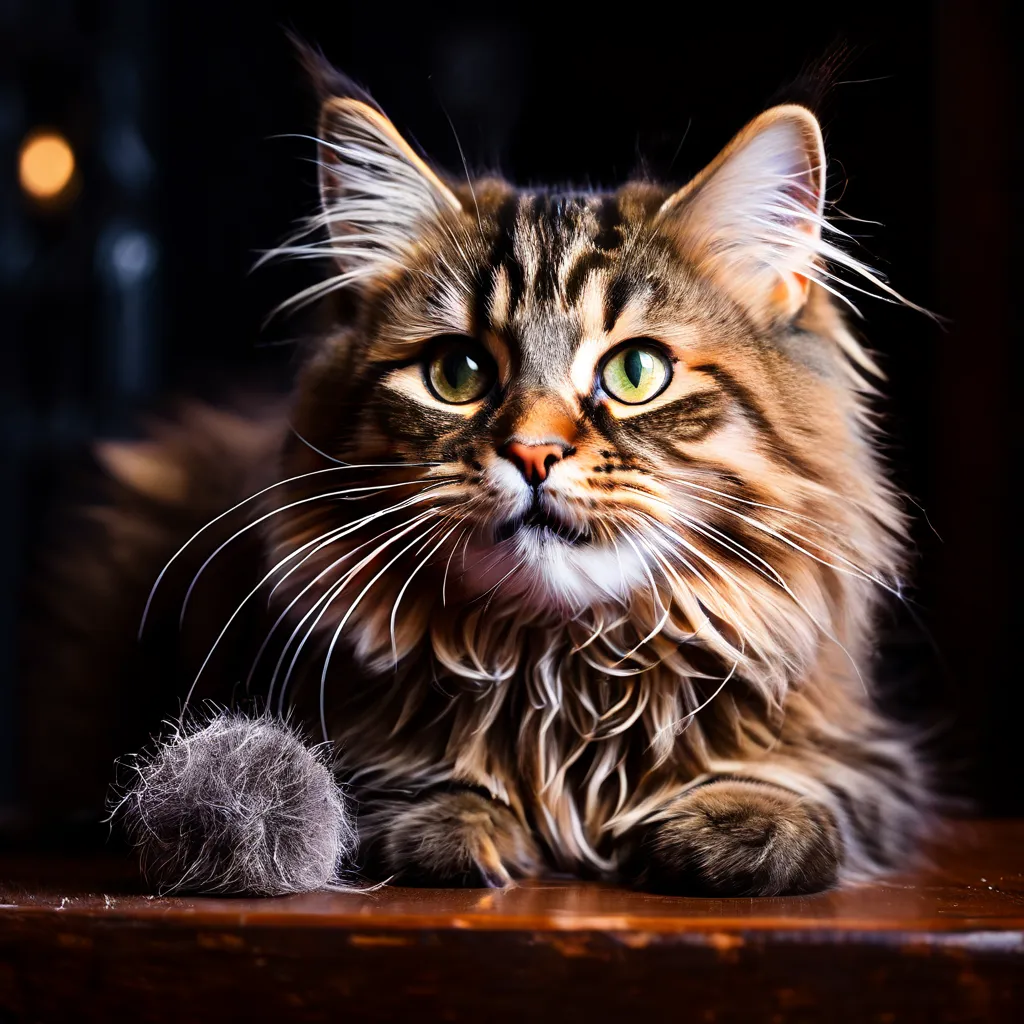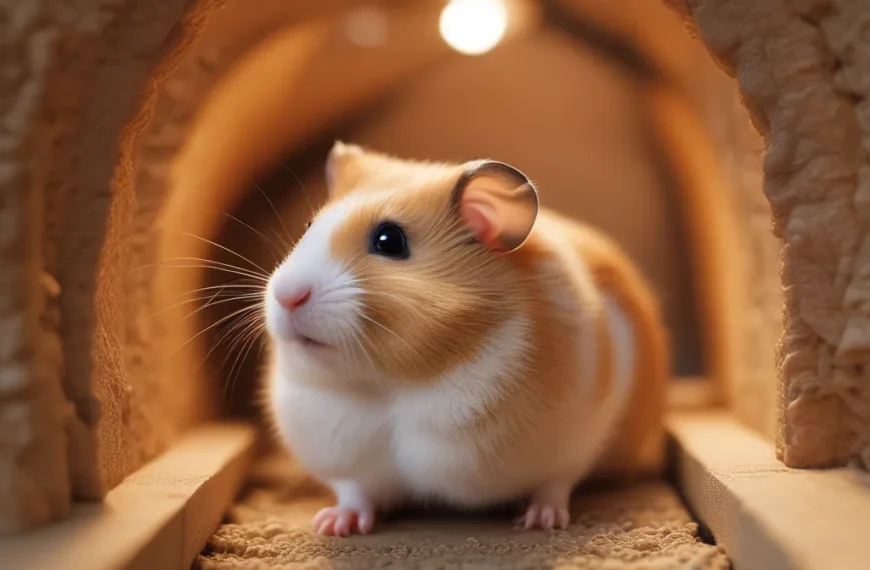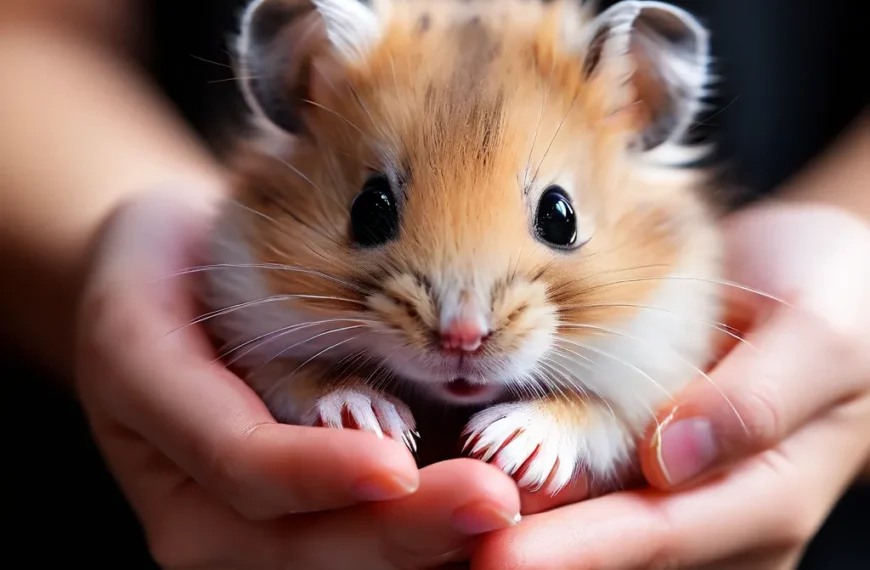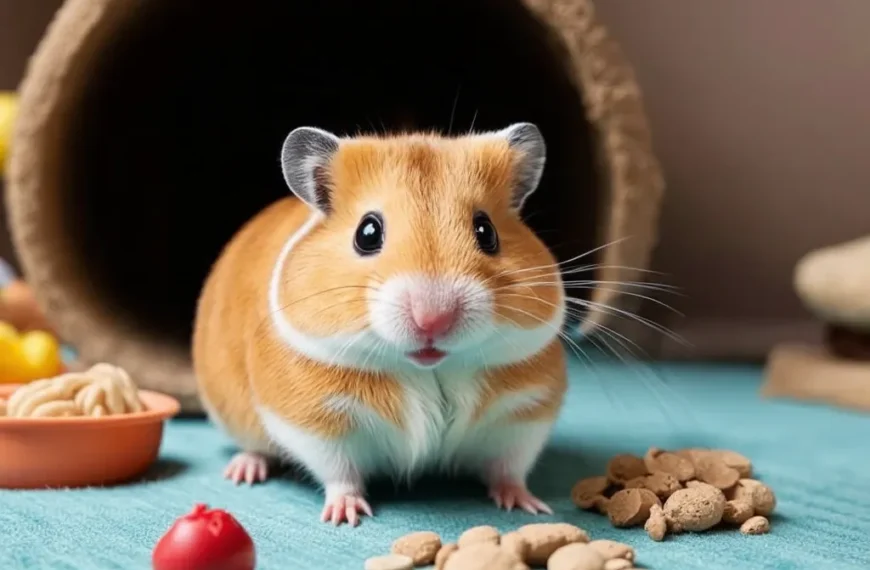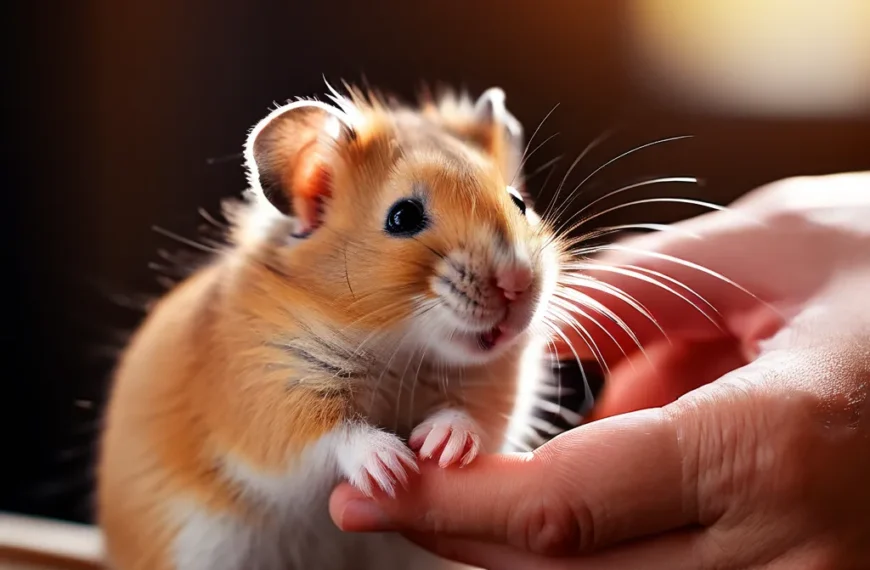Introduction
As a cat owner, you may have noticed that your feline friend’s diet plays a significant role in their overall health and well-being. One question that often arises is whether a raw diet can affect the amount of feces produced by cats. In this article, we will delve into the relationship between a raw diet and the amount of feces produced by cats, exploring the potential benefits and drawbacks of this type of diet. 
Do cats poop less on a raw diet? This is a common question among cat owners who are considering switching their pet’s diet to a raw one. While there is no straightforward answer, research suggests that a raw diet can indeed impact the amount of feces produced by cats. In this article, we will examine the relationship between a raw diet and the amount of feces produced by cats, as well as the potential effects on their digestive health and overall well-being.
What is the relationship between a raw diet and the amount of feces produced by cats?
Cats on a raw diet tend to produce less feces compared to those on a traditional kibble diet. This is because raw food is more natural for cats to digest, as it closely mimics their ancestral diet. Cats have a shorter digestive tract compared to other animals, which is designed to process raw meat efficiently. As a result, cats on a raw food diet may experience fewer digestive issues.
A study from 2002 fed kittens a raw rabbit diet and found that their stool quality was improved after just a week. The stool was brown or dark brown in color, with a reasonably firm consistency. There was no sign of mucus or blood, indicating a healthy digestive system.
When cats are fed a raw meat-based diet, they tend to produce smaller and less frequent feces. This is because the diet is high in protein and low in fiber, which means that there is less waste material for the body to eliminate. Additionally, the raw food diet is easier for the cat’s digestive system to process, resulting in less strain on the body and a reduction in the amount of feces produced.
It’s worth noting that if you change your cat’s diet, you should expect their feces to change. This change could be in relation to the consistency, the color, and the frequency of defecation. For example, high-fiber foods can make the poop bulkier, while cats fed a raw meat-based diet will produce smaller and less frequent feces.

How does a raw diet affect the digestive health of cats?
A raw diet can have both positive and negative effects on the digestive health of cats. On the one hand, a raw diet can provide cats with essential nutrients and enzymes that are often lost in the cooking process. This can lead to improved digestion and a reduced risk of digestive disorders.
On the other hand, a raw diet can also pose some risks to a cat’s digestive health. For example, raw meat can contain bacteria such as Salmonella and E. coli, which can cause food poisoning in cats. Additionally, a raw diet may not provide cats with all the necessary nutrients, leading to malnutrition and digestive problems.
It’s also worth noting that some cats may have difficulty digesting raw food, particularly if they are not used to it. This can lead to digestive issues such as diarrhea, vomiting, and stomach upset.
Overall, the impact of a raw diet on a cat’s digestive health will depend on a variety of factors, including the type and quality of the food, the cat’s individual needs and health status, and the way in which the food is prepared and handled.

Some benefits of a raw diet for cats include:
- Improved digestion and reduced risk of digestive disorders
- Increased nutrient intake and reduced risk of malnutrition
- Potential for improved dental health and reduced risk of dental problems
However, there are also some potential risks to consider:
- Risk of food poisoning from bacteria such as Salmonella and E. coli
- Potential for malnutrition if the diet is not well-balanced
- Risk of digestive issues such as diarrhea, vomiting, and stomach upset
It’s essential to consult with a veterinarian before making any changes to your cat’s diet, particularly if you’re considering switching to a raw diet. They can help you determine the best diet for your cat based on their individual needs and health status.
Do cats on a raw diet have improved stool quality and frequency?
Cats on a raw diet often experience improved stool quality and frequency due to the natural and nutrient-rich composition of their food. A raw diet typically consists of unprocessed meat, bones, and organs, which are easily digestible by cats. This leads to a reduction in the amount of waste produced and a decrease in the frequency of bowel movements.
One of the primary reasons for this improvement is the absence of fillers and by-products found in commercial cat foods. These ingredients can be difficult for cats to digest, resulting in loose stools and frequent bowel movements. In contrast, a raw diet provides cats with the nutrients they need to maintain a healthy digestive system.
Additionally, a raw diet can help to reduce the amount of water in a cat’s stool, making it more solid and less prone to accidents outside of the litter box. This is especially beneficial for cat owners who value a clean and hygienic living environment.
Overall, a raw diet can have a significant impact on a cat’s stool quality and frequency, leading to a healthier and more comfortable life for both the cat and its owner.
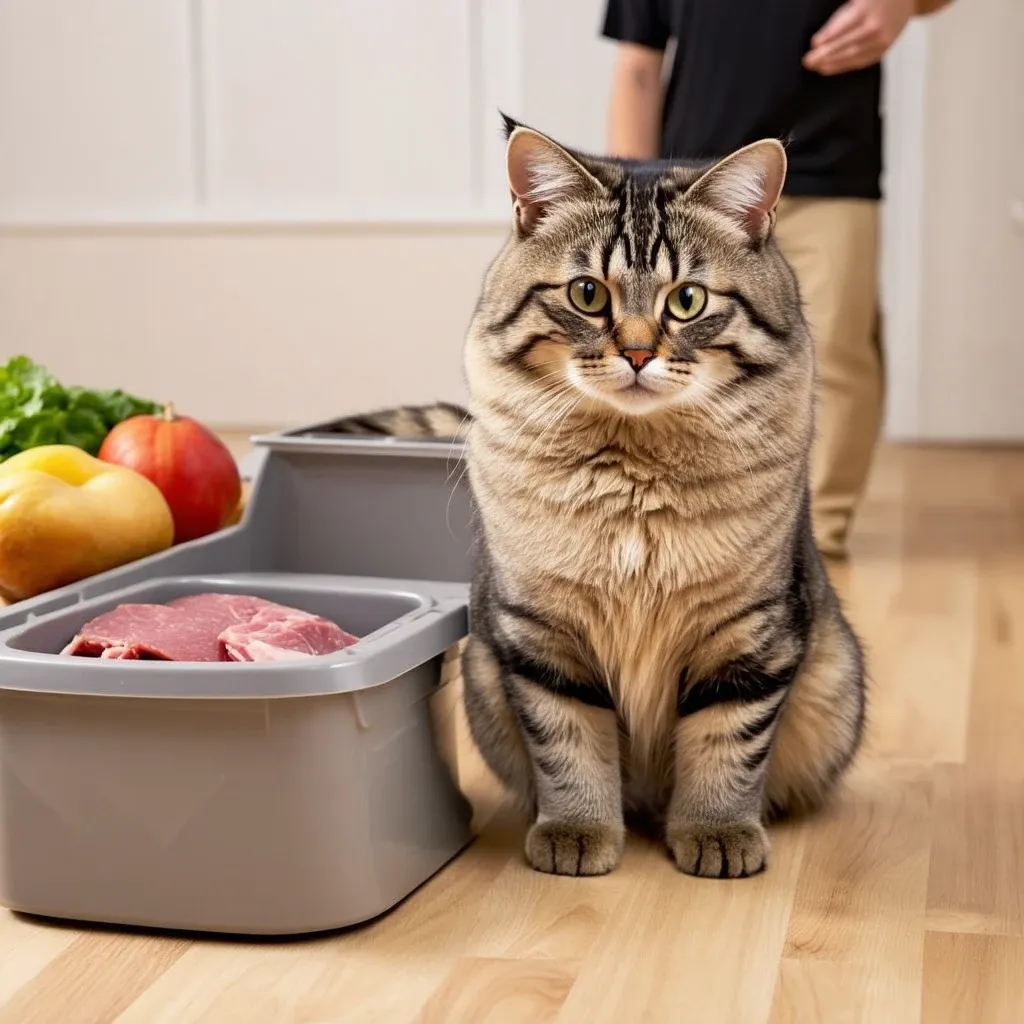
Can a raw diet provide additional health benefits for cats, such as improved dental health and allergy relief?
A raw diet can provide several additional health benefits for cats, including improved dental health and allergy relief. Here are some of the ways a raw diet can benefit your cat’s health:
Improved Dental Health
A raw diet can help improve your cat’s dental health by reducing the amount of plaque and tartar on their teeth. Raw meat contains natural enzymes that help break down and eliminate bacteria in the mouth, which can help prevent dental problems. Additionally, chewing on raw bones can help remove plaque and tartar from your cat’s teeth, reducing the risk of dental disease.
Allergy Relief
Some cats may experience allergies to certain ingredients in commercial cat food, such as grains or fillers. A raw diet can help alleviate these allergies by eliminating the offending ingredients and providing a more natural, easily digestible diet. Raw meat is also rich in omega-3 fatty acids, which can help reduce inflammation and alleviate allergy symptoms.
Other Health Benefits
In addition to improved dental health and allergy relief, a raw diet can provide several other health benefits for cats, including:
- Improved digestion and reduced risk of digestive problems
- Increased energy and vitality
- Healthier skin and coat
- Reduced risk of chronic diseases such as diabetes and arthritis
Overall, a raw diet can provide several health benefits for cats, including improved dental health and allergy relief. However, it’s essential to consult with a veterinarian before making any changes to your cat’s diet.
Conclusion
In conclusion, a raw diet can have a significant impact on the amount of feces produced by cats. The relationship between a raw diet and the amount of feces produced by cats is complex, but research suggests that a raw diet can lead to a reduction in the amount of feces produced. This is likely due to the fact that a raw diet is more easily digestible, resulting in less waste.
Additionally, a raw diet can have a positive impact on the digestive health of cats. By providing essential nutrients and enzymes, a raw diet can help to promote a healthy gut and reduce the risk of digestive problems.
Furthermore, cats on a raw diet may experience improved stool quality and frequency. This is likely due to the fact that a raw diet is more easily digestible, resulting in fewer digestive problems and a more regular bowel movement.
Finally, a raw diet can provide additional health benefits for cats, such as improved dental health and allergy relief. By providing essential nutrients and enzymes, a raw diet can help to promote overall health and well-being.
Overall, the evidence suggests that a raw diet can have a positive impact on the amount of feces produced by cats, as well as their overall health and well-being.


